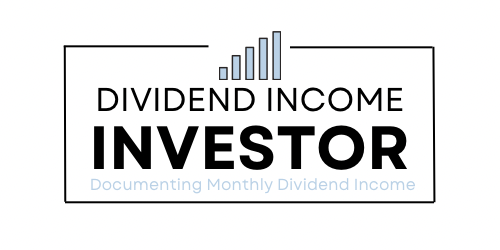I have been pondering my financial goals over the past few months as we all routinely do at the beginning of each new year.
It’s an opportunity to start the year off with a fresh sense of optimism.
Having said that, now that we’re pulling up on the tail end of February, the direction of my financial situation has been increasingly on my mind.
I have been starting to wonder how my financial plans for 2017 compare—especially after taking a year off.
Before I do compare, though, I wanted to provide you with one additional piece of insight before getting into the goals.
It’s more practical to focus on earning extra rather than be a tightwad.
It just makes a lot more sense because extreme frugality leads to a lower quality of life and a more complacent attitude.
Frankly, YOLO.
The focus should be on the lifestyle you want to achieve, not on how impressive of a cheapskate you can become.
Hence why it’s better to focus your efforts on making your money work for you and on building additional skills that increase cashflow.
Basically, enjoy life to the fullest and acquire assets along the way.
That said, here are my financial goals for twenty seventeen.
[bctt tweet=”Financial Goals for 2017″ username=”reversethecrush”]1. Max out my Employer Stock Sharing Plan.
I am privileged to work for a company that offers an employee stock sharing plan.
Frankly, if you get the opportunity, investing in your employers stock sharing plan is something you don’t want to pass up.
Typically, the company will allow you to contribute a percentage of your salary directly towards purchasing their shares. Then, they will match your contribution up to a specified percent and contribute an extra amount on your behalf.
The bottom line is they give you free money, and then depending on that company’s dividend policy, you’ll get more passive income from dividends. It’s a consistently forced savings vehicle that you absolutely want to take advantage of.
2. Increase Dividend Income.
If my ultimate plan is to become a full time blogger, freelancer, and dividend investor, then I better be focussed on building my dividend business.
That said, my dividend portfolio has taken a step backwards in the past year. Since that is the case, I don’t have a specific percentage of growth in mind. I just want to aggressively work towards bringing it back to it’s former level of cashflow.
Prior to stumbling on to blogging and trading, dividend investing was the key method I was using to chase financial independence.
However, it has now become one of the four methods being utilized towards achieving financial independence (Salary | Blogging | Freelance | Dividends).
Moreover, when it comes to growing my dividend cashflow, I thoroughly enjoy running the operation as if it’s an actual business.
It’s slightly time consuming, but it’s fun to chart your progress and watch the monthly income grow.
*100% of dividend income will be reinvested.
3. Save at least 10 Percent of all income earned.
Back when I started building my dividend portfolio, I was saving approximately 35 percent of my total income. Now, as a full grown adult in requirement of vices, and in need of all the same necessities as everybody else, I’d have quite a hard time saving that high of a percentage.
On the other hand, I wouldn’t want to put myself in that tight of a squeeze now anyway. Like, c’mon. I’m almost thirty one. You have to stop to enjoy life, or you’ll burn out.
With that in mind, I want to save ten percent of all income earned. Ten percent of my salary, ten percent of any freelance job, and 10 percent of any alternative income generated. Whatever is left can be spent however I want.
4. Continue to pay off my student loan.
Now, I don’t have massive loads of debt because I’ve never gotten in to a car loan, mortgage, or anything in general that would’ve required significant financing. The only significant debt I’ve ever had is my student loan.
Admittedly, I do have a student loan balance lingering that I’m working to pay off. However, that’s only because I’ve always valued saving over paying off debt.
Frankly, there’s not even that large of a balance left. The issue is that I’m paying 5.2% interest.
In an effort to save money on interest and pay it off sooner, I plan on investigating my options to refinance it elsewhere.
Otherwise, when it comes to debt repayment, I’m going to attack it with ferocity to free up cash flow. After all, cash flow is king.
5. Budget Consistently
In order to make sure all of the above goals are achieved, I must remember to budget consistently.
Achieving your savings goals comes down to your ability to make it a habit.
If you are able to set aside a small amount of time to manage your money as it comes in, you will be in far better control of your future.
When you get paid by your employer, pay your bills and yourself first. It’s really that simple. After you’ve got those two necessities out of the way, you can spend the rest on whatever you want.
If you practice this method of saving, you will be making financial progress each and every payday. Furthermore, you are building habits. Eventually, these habits will become such a part of your routine that missing a payment to yourself becomes bothersome.
Conclusion
To recap, my long term goal is to become financially independent through a combination of blogging, freelancing and dividend investing.
Every goal included above has been selected with that long term target in mind.
Be that as it may, it never feels as though I am doing enough. There’s always that feeling that I could be doing more. However, I’ve grown to believe that’s the incorrect way to think.
The right way to make progress towards your goals is to focus on improvement.
Even if you can only afford to save $25 per payday, it’s worth it because it’s a step in the right direction. Each small advancement helps to put you in a better financial situation.
In closing, the 6 goals above are intended to increase cashflow and put me in a better position to eventually reach FI.
Question: What are your financial goals for 2017? Are you focusing on paying off debt or more on saving? Are you optimistic about your financial situation in 2017?



 6 Ways Blogging gives your Career an Edge
6 Ways Blogging gives your Career an Edge
